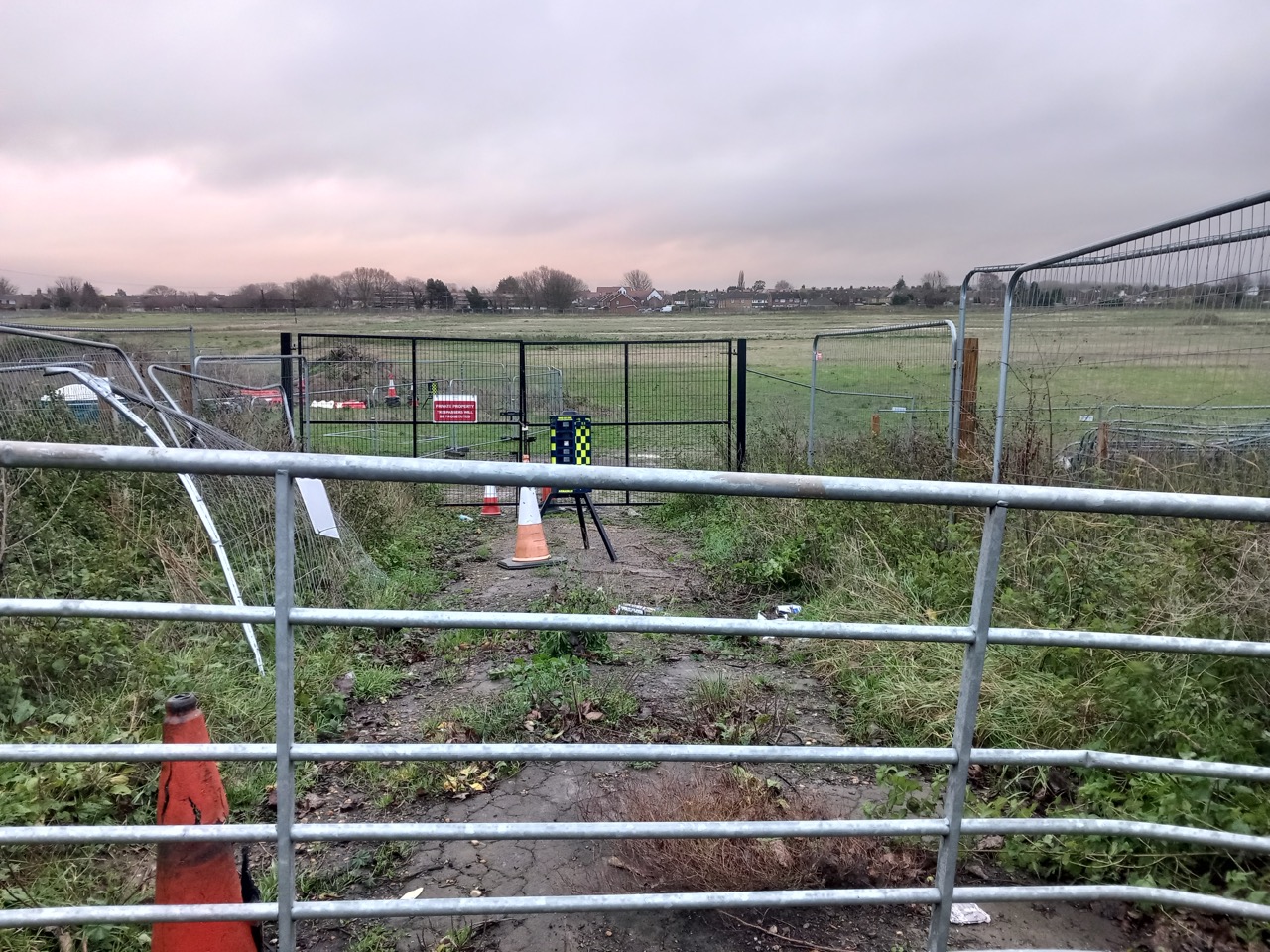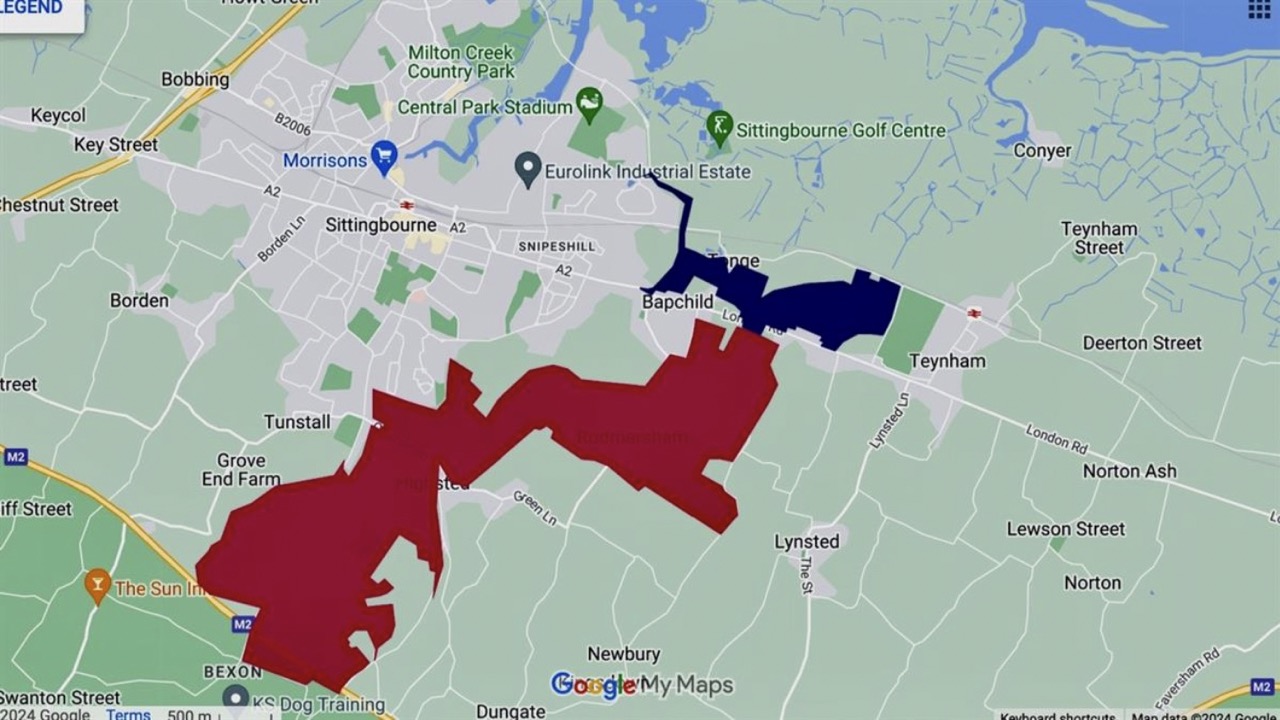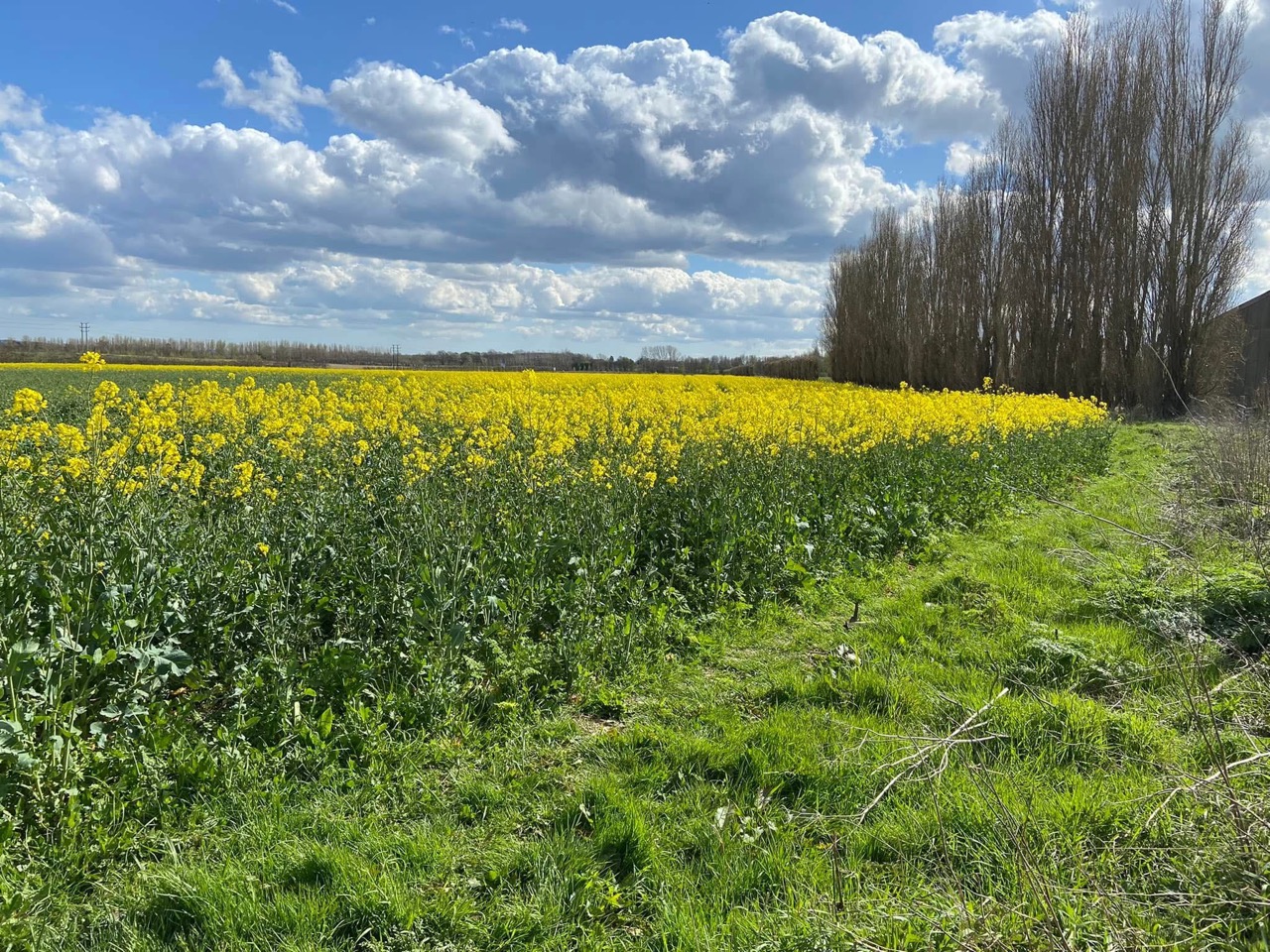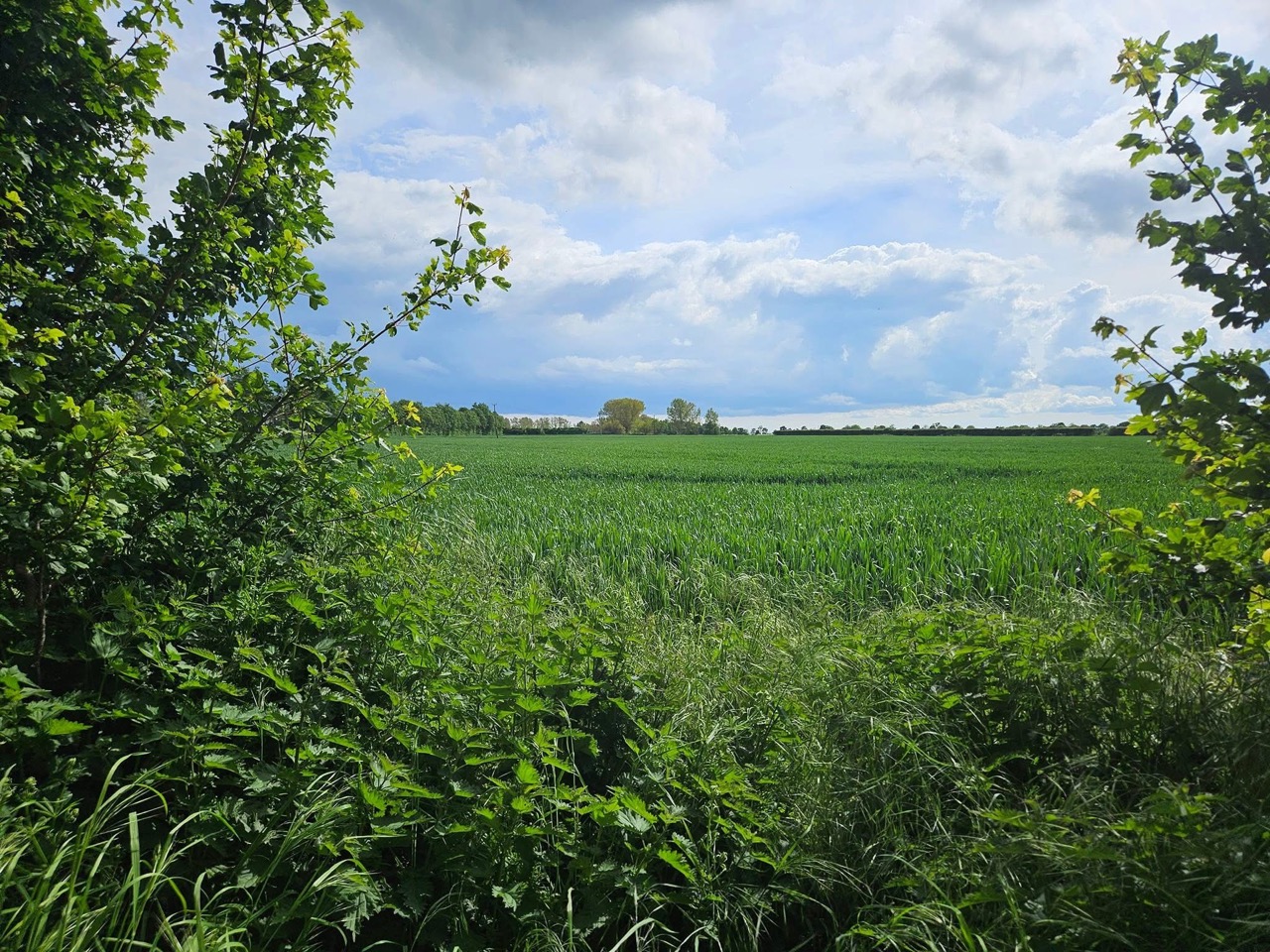More than 14,000 new homes are set to be built every year in Kent under radical new housing targets set by central government.
Kent's County councillors are up in arms alongside irate villagers over the loss of prime agricultural land, and nature, to housing developers, with groups from all corners of Kent uniting to protest the unnecessary greenfield development.
We will launch a golden era of building
—Sir Keir Starmer, The Times.
Sir Keir Starmer writing in The Times last week, promised to fast-track the building of 1.5 million homes by 2030, saying that Britain is in the worst housing crisis in living memory.
"For too long, the country has been held to ransom by the blockers and bureaucrats who have stopped the country building," he said.
"Choked off growth and driven prices through the roof. They’re suffocating the aspirations of working families and obscuring the future of our country."
In a fiery article that held back no punches, he said the country's prosperity relied on building more houses, citing 150,000 children in temporary accommodation, and homeless veterans, calling it a "shame, and a failure," where home ownership for 19–29-year-olds had more than halved since the 1990s.
Taking a shot at local planning officers and committees that rejected planning permission, and countryside charity groups, and naysayers, he said the entire planning system needed a completer overhaul.
"Every road, pylon and mast — which connect people with opportunity — must jump through endless hoops, only to be opposed, dragged out, before eventually, if lucky, approved."
Citing Anglian Waters 210-mile underground pipeline needing to build a tunnel for bats that cost over 100 million pounds.
Deputy Prime Minister, Rt. Hon. Angela Rayner, as the Secretary of State for Housing, Communities and Local Government, can now override planning decisions by local councils and “call them in.”
Calling the local borough council's planning process “creaking” she promised a major overhaul.
“Building more homes and infrastructure across the country means unblocking the clogged-up planning system that serves as a chokehold on growth," she said earlier this week.
"The government will deliver a sweeping overhaul of the creaking local planning committee system."
I met with Mike Baldock the deputy Head of Swale Council, on Sunday. Chair of the Planning Committee, and Leader of the Swale Independent Alliance Group, for Borden and Grove Park.
Driving me to Frognal Lane, in Teynham, on the outskirts of Sittingbourne, he showed me a vast sprawling field which was one of many building projects around Swale.
It only looked more desolate with the bleak, rainy weather. On the far side were a couple of abandoned pipes, waiting for the builders to start.
“Well, you know, Teynham has had a horrendous amount of development, with lots more to come, and it just shows how important this area is. You have a Triton statue, the Roman mausoleum. We are on an ancient road,” he said looking across the fields.
“The A2 is Watling Street. It is a Roman road all around it. If it is not the highest quality agricultural land, it is full of history and heritage.
“According to some of the old legends, Hengist, his field was built in Tong, one of the big stories of our history.”
“Didn't they find loads and loads of coins from there, Roman coins?” I asked
“We found Roman coins in several places,” he said.
“There was a lot found in Newington, along with a Roman temple in Newington, as it was being developed. We have had two Stonehenge's found in Swale, one at Iwade, and one at the Meads in the local community woodland in Sittingbourne.”
“Hugely important historic heritage landscape just being wrecked. No consideration, no exploration. It is just get in, get it done as quickly as possible, and we are losing so much heritage.”
I asked what the housing target was for Swale, generally?
“It will be around 5,400 a year, every five years. We are having an annual housing target of over 1,000 houses to be built in Swale.
“So, for a five-year supply, you must show 5,000 houses. Yeah, so 1,000 a year.”
“Although we are building more at the moment because they paused for a while. So, for a long time, we haven't been delivering that five-year housing supply because certain developers just haven't been building their sites out.
“For a while, we couldn't build the sites out because National Highways prevented us from building the sites because they wanted to wait until the Stockbury Roundabout was finished because there is too much traffic on the roads.
“So, it was all delayed because of the highways. One part of the government was telling us we had to delay. The other part of the government was punishing us for not building.”
There's 1.5 million vacant houses
—Mike Baldock
“So, there are 1.5 million vacant houses, and there are, according to reports, around 1.5 million properties that have got planning permission, which have not been built.
"What developers do is they get permission for a site and then they sit on it.
“They wait until the market is most favorable, they can then make the biggest profit and in the meantime what they try and do is sneak in some smaller developments, because councils are then punished for not delivering those houses.”
"This is an area that was used by the community. Where kids played football, and people walked their dogs.
"Now it is all closed off with a camera, and a mess."
"On a food security angle, the land along the A2 in Swale is amongst the highest 2 or 3 % graded land in the country.
"And at a time where we should be increasingly free from relying on international trade, and making ourselves susceptible to what's going on in the world, we should be trying to increase food security.
"You don't increase food security by building houses on your most productive land.
"It is one of the most ridiculous, backward looking policies going."
Highsted Park to the South and east of Sittingbourne was rejected by Swale Council but overruled by Angela Rayner centrally.
It spans a vast area joining villages together as a large urban town, with half a field between Bapchild and Sittingbourne.
It was called in as Swale council’s planning committee was reaching a decision.
Split into two separate applications, the larger development, Highsted Village with 7,150 houses between Bapchild and Teynam, will have a community space, hotel, a new tip, and primary and secondary schools.
Carol Goatham, from the campaign group Farm Fields & Fresh Air, has been a major campaigner against greenfield development across Kent, with a Facebook group of around 1400 active members. Alongside other groups such as Campaign to Protect Rural England (CPRE), Save Capel; with day of action campaigns with 30 other groups ‘Kent Residents Unite’ against the unnecessary greenfield development destroying local communities, swallowing villages into a greater enlargement of towns.
Carol has said the Highsted Development joins seven villages destroying rural life, she also campaigns against the large Duchy of Cornwall development in Faversham for 2,500 houses, across a vast stretch of fields. It is yet to get planning permission.
I met up with Carol and a group of councillors on Monday at Macknade’s Food Hall off the Selling Road in Faversham.
A beautiful out of the way spot to talk about planning and development, and the impacts on these communities.
I call it the fence of death
—David Mair, Communications Manager, CPRE
Sarah Moakes, a councillor speaking in a private capacity, said they were all at their wit's end with the never-ending cycle of building tearing apart their rural community.
“The government is proposing to prevent planning committees from having a say on decisions. And that will completely remove, presumably, the Parish Council from having a role,” she said.
“Angela said yesterday that any proposal that was compliant with the local development plan and was compliant with the local development plan and with the MPPS could just go through.
“So, there will be very little accountability.
“Planning decisions will be taken by officers under delegated powers without the scrutiny of the Planning Committee and the elected members.
“And I think there is a danger in removing that element of accountability, it means that there is a potential for officers to be subjected to undue influence by developers.
“It is going to be huge.
“There were three planning officers arrested for potential corruption at Leeds City Council, who are under investigation.”
Rich Lehmann, a Green Party Councillor for Boughton & Courtenay on Swale Borough Council and Swale East at KCC, joined us.
“I believe there is an open democracy article which came out shortly after the Wise's Lane
decision was made, that stated Mark Green the developer had given a donation to the Conservative Party prior to the decision being called in.
“And then another donation which I believe was in the region of 35,000 pounds some weeks after the decision had been made in his favour,” he said with a wry look.
Carol moved in with a joint accusation that the high-stake development was called in by the Secretary of State under the influence of the developer, who is Quinn Estates and Atwood.
“They're very prolific developers, much hated around various areas of Kent,” she said, “and the more developments they get through, the richer they get and the more influence they have.
“Unfortunately, for the rest of Kent.”
“We need a government who are willing to consider the needs of our environment and our well-being above economic growth, “said Rich.
“We need a government who are willing to address a housing crisis in the way which it needs to be addressed, rather than in a way which lines developers' pockets.
“Which is through the building of social housing, smaller units which people can afford to buy outright, not with right to buy or shared ownership.
“Or any number of other schemes which the government bring in to make homes artificially affordable.
“And until we have a government who are willing to be honest about the fact that the housing crisis is a crisis of affordability rather than one of a shortage of houses, and to consider things like empty homes and second homes as part of that, as well as rent caps, then the problem will persist because it's free market.”
Discussing Brownfield development, which is developing derelict sites, Carol brought up CPRE reports.
“The reports by CPRE show you could build 1.2 million homes on brownfield, and it's being neglected because there's tax to build on brownfield.
“There was that famous one wasn't there which was, they think a polluted plot because of all the slaughtering that they did over at Chatham.
“This was the Pennybrook site,
“So, it costs more to clean up those sites and to develop them, but CPRE did the brownfield report and they say there's room for 1.2 million homes to be built.”
“The problem with putting central targets onto communities, is you start hitting one area against another, to save your own.
“Ham Farm is one example where one of the councillors in Faversham Town Council favored the Duchy because he said it would save Ham Farm, which is a 250-house development. So, he favoured 2,500 houses.
“It pits community against community, even to the same town, you know, West versus East, and it's ridiculous. We should all be pulling together to fight it.
“So, this, for me and for our organisation, is a social justice issue.
“The government are saying that they want to build 1.5 million houses over their term, but they're not saying that they want to increase the hospitals.
“They're not saying that they've got a plan to increase the GP to patient ratio or favour us in that way.
“We know that there's a sewage problem across the country, we know that Southern Water has had to pay over £90 million in fines for the last, well, four or five years.
“These water companies, they don't actually have a say in planning, they're just expected to tag along.
“So, the social justice issue is that these housing numbers are being foisted on communities with no backup for those communities in terms of education, in terms of sewage distribution, in terms of GPs, in terms of traffic pollution.
“There's absolutely nothing in it for us. It's expensive houses that we can't afford. And these houses are being bought by people outside of the area.
“People need houses, but the whole social justice issue is that the right houses are not being built.”
“As an example, I think, I can't remember if it was Faversham Town Council who commissioned the report, the Housing Needs Survey back in about 2020,” said Rich.
“It identified that there are about 2,000 houses needed in the town, and since 2017 or 2018 we've had almost 2,000 houses built in the town, but because they didn't address the need of those 2,000 people, they still need a home.
In Faversham, 1,800 houses were built out around the town or given planning permission. Of those, 700 still need to be built, the ones that have planning permission.
Sarah stated that 7,047 houses with planning permission are still to be built in Swale. 7,047 dwellings with planning permission are just sitting waiting to be built.
“I mean the system is entirely skewed in the favour of the developers and it seems with the MPPF reforms that are currently going through that it will just get worse.
“It probably won't achieve any houses actually being built, it will just achieve, council’s handing out permissions hand over fist.
“Yes, and one very easy way to combat that would be through a land,” said Rich, “a value tax whereby the developers of a land or the owners of the land, as soon as that land is given, will be payable as long as they sit on it.”
“It will incentivize them to build and sell rather than just hold on to it.”
“This is all, and to keep that planning permission alive, all they have to do is just prove that they've started work. That's all,” said Carol.
“Yeah, there was that case, said Sarah, “I think it was it over at Maidstone, and they laid about three curbstones, I think.”
“What is needed is just digging a hole,” said Rich.
“I just wanted to highlight, actually, that I put a message on Stop the Destruction of Kent,” said Carol, “which is a private Facebook group about development. And I said, everyone please let me know your villages which are threatened with losing their identity.
“And I got so many responses that you'd need a map, and you'd actually need to put in a pin into every little village.”
“Villages that are threatened are Birchington, Westgate, Minster-in-Thanet, and then Bapchild, Rodmersham, Teynham, Tunstall, all of the green space associated with the horrific Highsted Park development.
“Pegwell Bay, Minster Marshes because of Sea Link..”
David Mairs, the Communications Manager with CPRE joins us.
“How's it getting worse?
“I drive out from Thanet today to meet you now and it seems mile after mile after mile of what is just about, some of the best farmland in the country.
“Surrounded by what I call the fence of death.
“The steel fencing that goes up, overnight it would seem, around what was once a field and is suddenly surrounded by the fencing and it just goes on and on and on.
“We're not going to have a green field left in Thanet the way it's going. We're pretty shy there anyway. How's it getting worse? Well, the intensification appears to have got worse.
“I've been working with CPRE Kent for a shade over seven years. In that time the onslaught has been just that, an onslaught. It's probably quickened; it's probably worsened.
“And now the things we're hearing from the new government.
“All the sounds coming out of the new administration are deeply depressing for those who love the countryside.
“Aside from those concerns of the farming industry, just people who love the countryside are being told effectively it doesn't matter. Wildlife doesn't matter; biodiversity doesn't matter.
“Even when the damage is accepted, it's going to play second fiddle to the purported need and desire to build new houses, solar farms, infrastructure, whatever.
“Those who love the countryside, seem to have as little a voice or weaker voice as we've ever had.
“You saw it at Highsted Park, where Swale were going to make a judgement that evening. Officers hadn't recommended refusal.
“And at the 11th hour, the Secretary of State, Angela Rayner, took it out of the Council's hands for self-enquiry.
“She called it in.”
“It's a gold rush for developers,” said Carol.
“Yeah, it’s a gold rush,” chimed in Sarah.
“Angela Rayner says, well, poor developers are being frustrated. That was in her comments to the BBC.
“She said that developers are being frustrated. Developers have got a blank check. They've got all the expertise in their hands.”
Cllr Julien Speed Cllr said “the infrastructure in Teynham can't cope with these extra houses.
“Services in Teynham are at breaking point,” adding that it was a disgrace.





